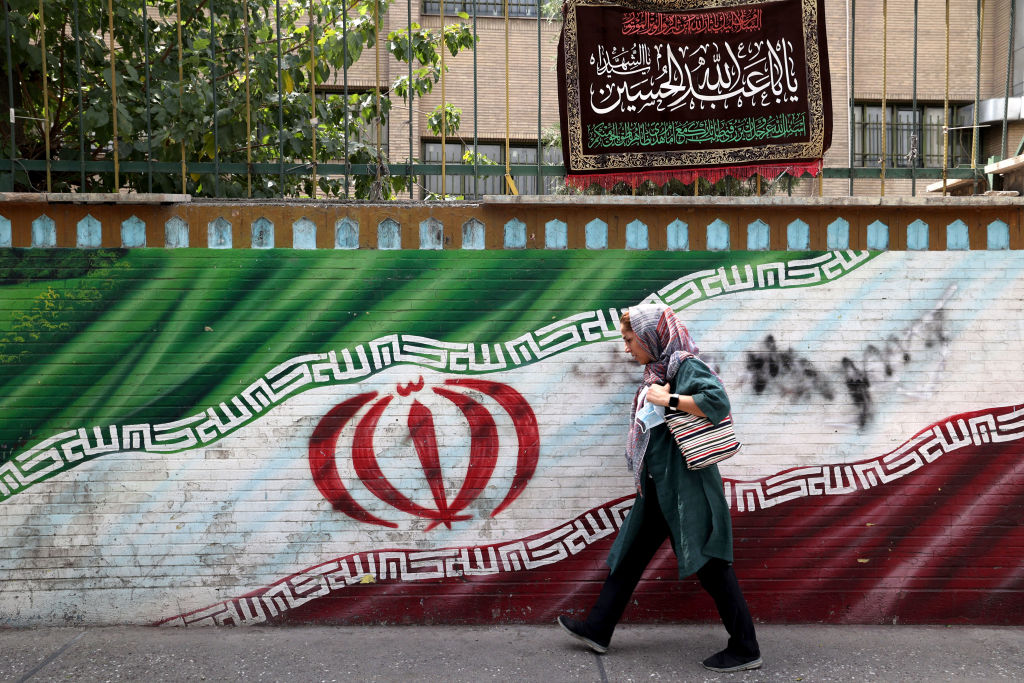
The Vienna negotiations to revive the July 2015 Iran nuclear agreement—the Joint Comprehensive Plan of Action, or JCPOA—are once again in danger of fizzling out. Tehran and Washington, along with fellow signatories Britain, France, Germany, Russia and China, have been trying for more than a year to hammer out a deal that could satisfy both sides, but to no avail.
The two parties have at times been on the verge of closing a deal, so what has impeded this process and where is it heading?
Former US president Donald Trump greatly damaged the JCPOA by withdrawing from it in May 2018 and imposing harsh sanctions on Iran. He claimed that the agreement concluded by his predecessor Barack Obama was inadequate and that the Iranian Islamic regime was a regional menace. In the process, he also forged an anti-Iran regional Israel–Arab front.
Trump’s rejection of the JCPOA drew bitter criticism from other signatories, especially London, Paris and Berlin, which viewed the agreement as important to prevent Iran from going down the military nuclear capability path. It also led Tehran to retaliate by installing more advanced centrifuges and accelerating uranium enrichment, which is now up to 60% purity.
President Joe Biden made the JCPOA’s revival an early objective of his administration. Yet, the problem all along has been the lack of trust and goodwill between Tehran and Washington as longstanding adversaries. The two sides have had no formal relations since the advent 43 years ago of the Iranian Islamic regime, which castigated the US for backing the pro-Western monarchy of Mohammad Reza Shah Pahlavi, who was overthrown in the popular revolution of 1978–79. Washington has constantly sought to contain Iran, which was once a pillar of Pax Americana in the region, and Tehran has sought to defend itself against any potential American attack, backed or not backed by Iran’s other regional arch-foe, Israel, and rival, Saudi Arabia.
The only US leader to relax the policy of containment and reach out to Tehran in the face of stiff Israeli and other regional opposition was Obama. He acknowledged the wrongness of the 1953 CIA-orchestrated coup that toppled the nationalist reformist government of Mohammad Mosaddegh and succeeded in breaking the ice with Iran’s reformist Islamist President Hassan Rouhani (2014–2021), resulting in the signing of the multilateral JCPOA—a triumph of diplomacy over politics of confrontation. Tehran agreed not to enrich uranium beyond 3.7% for peaceful purposes and in return Washington undertook to lift all nuclear-related sanctions on Iran. The JCPOA had a sunset clause of nearly a decade and a ‘snap back’ provision if either side violated the deal.
Tehran stood by the agreement despite domestic opposition, but Trump’s violation of the plan played into the hands of Iran’s powerful supreme leader, Ayatollah Ali Khamenei—a strong sceptic of the US—and his supporters. Iran’s current president, Ebrahim Raisi, who began his first elected term in August 2021, shares Khamenei’s distrust of the US. However, despite being wide apart and negotiating indirectly through the mediation of European signatories, Tehran and Washington managed to overcome many hurdles as they worked towards a settlement. In a zig-zag, up-and-down fashion, they were reported to have reached the final stage of an agreement a month ago. But the situation has come to a halt with Tehran insisting on a firm assurance that no future US administration will violate the agreement as Trump did.
In view of the polarisation of American politics and society, a possible Republican success in the mid-term elections, and a potential re-election of Trump to the presidency, it is understandable that Tehran is demanding a long-term guarantee that the US will remain obligated to whatever agreement it signs. Unfortunately, the Biden administration can’t give such a guarantee and nor, for that matter, could any US president, given the complexity of the US system, the degree of hostility by the forces of the right towards Iran, and the strong bipartisan support for Israel in the US Congress.
Meanwhile, Tehran has shored up its relations with Russia and China as part of an anti-US bloc. On the one hand, this provides a buffer for Iran against pressure from the US and its regional allies. On the other, it makes the Biden administration highly sceptical of Tehran, especially in light of Russian aggression in Ukraine. The ongoing public unrest against the Iranian government, triggered by the death of Masha Amini in the custody of the morality policy (Gasht-e Ershad) for not having worn her hijab properly, may also deter the process of signing a final agreement.
The cost of reaching or not reaching a deal may prove to be horrendous for all sides. If an agreement is concluded, it will be opposed in the Congress and in Israel, but Iran could produce five or six million barrels of oil a day to ease the pressure on energy prices. However, if there’s no deal, the US and Israel would be confronted by the need to find other ways to ensure that Iran doesn’t become a nuclear-armed state. The future of the JCPOA continues to hang in the balance.

